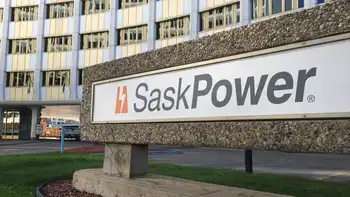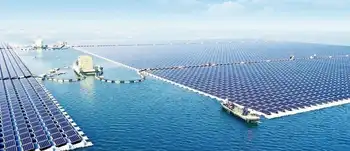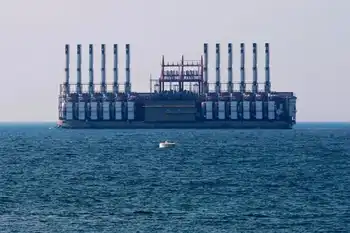Mayoral hopeful vows to sell Toronto Hydro
"We're going to do more than look at asset sales," Mr. Rossi told them in last month's debut. "We're going to sell assets and we're going to start with Toronto Hydro."
But what started as a gimmick has emerged as the first real idea to come out of this year's mayoral campaign - and a good idea at that. At a time when the city is facing an annual budget shortfall of about half a billion dollars, with little hope of a bailout from the strapped federal and provincial governments, the mayor that emerges after October's election will have to look at everything the city does and everything it owns with an eye to saving money and maximizing value.
Mr. Rossi guesses that the sale of Toronto Hydro would bring in up to $2-billion, nearly enough to retire the city's debt of roughly $2.4-billion. Deployed another way, it could help pay the multibillion-dollar bill for transit expansion and other long-term strategic investments.
To those concerned about a fire sale of a valuable asset, Mr. Rossi suggests that, instead of selling Hydro to a single buyer, the city might list shares in hydro on the stock market and see how much they will fetch, then sell a share of the utility to private interests. Why, Mr. Rossi sensibly asks, does Toronto need to run a company that sells and distributes electricity? If it doesn't own the gas companies that keep our furnaces running, why must it own the electric company that keeps our lights on?
"I haven't seen anywhere in Jane Jacobs's work that to build a great city you have to own a utility," he says. In fact, the great urban thinker was a fierce critic of the bloated monopoly that was the Ontario Hydro of her day. When government tries to run a utility such as hydro, she argued, it produces waste, bureaucracy and debt.
Lawrence Solomon, executive director of Energy Probe, says that random power outages are far too common under Toronto Hydro - witness the series of blackouts last year, including one that left a quarter of a million people in the dark on one of the coldest nights of the winter.
London, England, had an unreliable power supply, too, until the British government privatized the power system starting in 1990. Today, Mr. Solomon says, private power providers have an incentive to keep their lines and transformers in good shape. If the power goes off, they pay out £50 to residences and £100 to businesses.
Privatization brought an environmental bonus, too. For political reasons, the old public utilities were married to dirty coal-burning power plants and inefficient nuclear plants. Their private successors quickly switched to cheaper, cleaner-burning natural gas. Under Toronto Hydro, argues Mr. Solomon, "we're overpaying for our power and we're not getting good service."
Those who defend city ownership of Toronto Hydro claim it is a valuable tool in Toronto's hands. Mayor David Miller, for one, argues that owning hydro helps the city implement its green agenda with programs to control energy use. But conservation is such a mantra these days that a privately owned Toronto Hydro would pursue it anyway. In any case, conservation programs are mainly in the hands of the provincial and federal governments.
Fears about how a privately owned hydro would run roughshod over energy consumers are overblown. The government's Ontario Energy Board regulates all electric utilities, public or private. It sets rates, monitors the fairness of markets and protects consumers by setting complaint-resolution standards and other safeguards. That would not change if hydro were in private hands.
In London, reports Mr. Solomon, energy rates went down for homeowners and small businesses as soon as privatization took effect, and eventually they fell for larger consumers, too, as the benefits of competition were felt. While privatizing hydro means Toronto would lose the millions in revenue generated by the utility, he believes the money it would realize from the sale combined with the taxes a private hydro would pay would more than make up for the loss.
Thankfully, it is no longer taboo to consider selling assets where it makes sense. A blue-ribbon panel recommended considering it in 2008. City officials say they are now exploring the sale of Enwave Energy Corp., the outfit that air-conditions buildings using cold lake water. But hydro is the big enchilada. Good on Mr. Rossi for opening the debate.
Related News

Sask. Party pledges 10% rebate on SaskPower electricity bills
REGINA - Saskatchewan Party leader Scott Moe says SaskPower customers can expect a one-year, 10 per cent rebate on electricity if they are elected government.
Moe said the pledge aims to make life more affordable for people. The rate would apply to everyone, including residential customers, farmers, businesses, hospitals, schools and universities.
The plan, which would cost government $261.6 million, expects to save the average residential customer $215 over the course of the year and the average farm customer $845.
“This is a very equitable way to ensure that we are not only providing that opportunity for those dollars to go back…





